
The health care sector is one of the largest segments of the U.S. economy (17% of U.S.GDP) and the average hospital uses 2.5 times the amount of energy as other commercial buildings, adding up to 836 trillion Btu or $5 billion annually, based on Department of Energy (DOE) data.
Health care facilities serve a uniquely vulnerable population exposed to an elevated risk of health, fire, and safety hazard. These heavily regulated, high-stakes facilities undergo continuous maintenance, verification, inspection, and recertification, typically operate 24/7, and are owner-occupied for long life. Systems in health care facilities must be carefully designed to be installed, operated and maintained in coordination with specialized building services, including emergency and normal power, plumbing and medical gas systems, automatic transport, fire protection and a myriad of IT systems, all within a limited building envelope.
Expert design guidance is essential.
White Papers
FREE DOWNLOAD - Humidity Control Events in Perioperative Care Areas
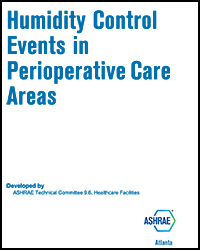
This white paper provides a protocol for perioperative care areas when mechanical systems are unable to maintain relative humidity (RH) within the desired range that has been established by the facility for their specific operations. For the purpose of this paper, a humidity control event occurs when the RH is above or below the established facility RH range.
Download the White Paper
Publications
ANSI/ASHRAE/ASHE Standard 170 - Ventilation of Health Care Facilities
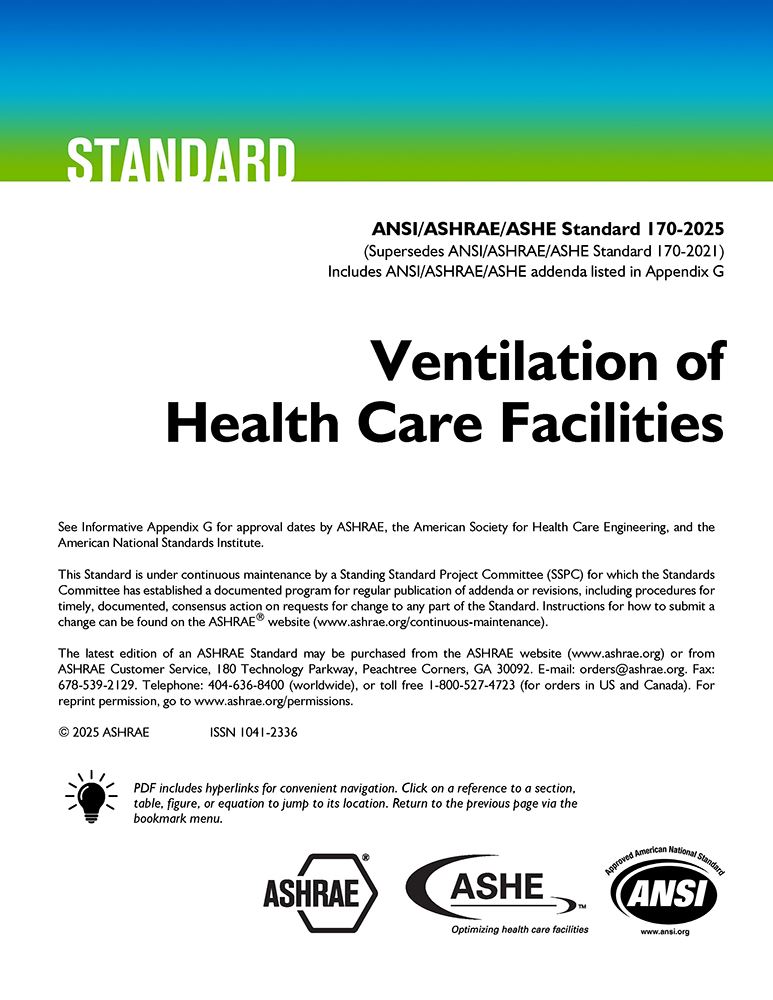
Developed in partnership with Facility Guidelines Institute (FGI) and American Society of Health Care Engineering (ASHE), ASHRAE Standard-170 has been providing key guidance on ventilation requirements for health care industry facilities since 2008. Use Standard 170 alongside HVAC Design Manual for Hospitals and Clinics for comprehensive design guidance on hospitals, nursing and outpatient facilities.
ANSI/ASHRAE/ASHE Standard 189.3, Design, Construction and Operation of Sustainable High-Performance Health Care Facilities
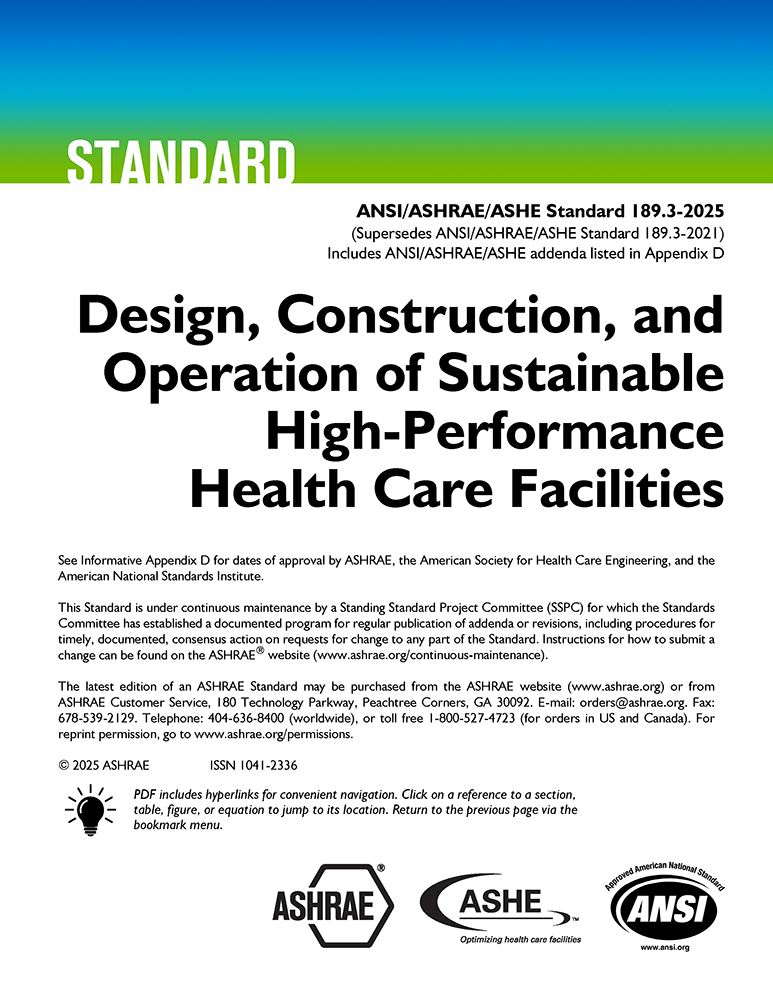
Health care facilities are among the largest and most energy-intensive buildings in a community, and their leadership recognizes that opportunities to conserve energy, reduce operating costs, and improve the environment are included in their stewardship with the communities they serve. However, there are limitations in the competitive and regulated market for providing the increasingly advanced building systems required for modern health care balanced with sustainability objectives. Requirements for safety can be at odds with sustainability goals, for example. This standard therefore prescribes the procedures, methods, and documentation requirements for the design, construction, and operation of high-performance, sustainable health care facilities.
Purchase
HVAC Design Manual for Hospitals and Clinics, 2nd ed.
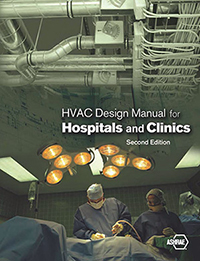
The second edition provides in-depth, up-to-date design recommendations based on best practices from consulting and hospital engineers with decades of experience in the design, construction, and operation of health care facilities. It presents solutions that are proven, cost effective, and reliable; solutions that provide low maintenance cost and high reliability, with a focus on presenting what's different about health care HVAC.
Available in English or Spanish
Advanced Energy Design Guides
FREE DOWNLOAD - Large Hospitals, 50% Savings
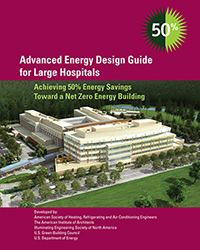
For "standard" mid- to large-size hospital, typically at least 100,000 ft2, but the strategies apply to all sizes and classifications of large hospitals.
Download the free PDF or purchase the print edition
FREE DOWNLOAD - Small Hospitals and Healthcare Facilities, 30% Savings
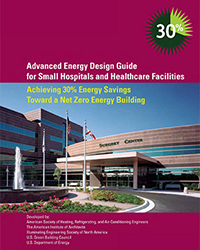
For small hospitals and healthcare facilities up to 90,000 ft2, which require a wide variety of heating and air-conditioning equipment. Options for daylighting are included.
Download the free PDF or purchase the print edition
Training and Certification
Healthcare Facility Design Professional (HFDP) Certification
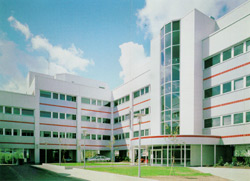
The primary purpose of ASHRAE's HFDP certification program is to certify an individual's well-rounded understanding and knowledge of medical terminology and facility operations as they affect HVAC&R design in healthcare facilities.
The program, which was developed in collaboration with the American Society for Healthcare Engineering (ASHE) of the American Hospital Association, requires that participants meet certain eligibility criteria before being allowed to participate.
Other Resources
Related Courses
Designing and Operating High-Performing Healthcare HVAC Systems – Online
Healthcare Facilities: Best Practices for HVAC Design and Operation – 6 hours